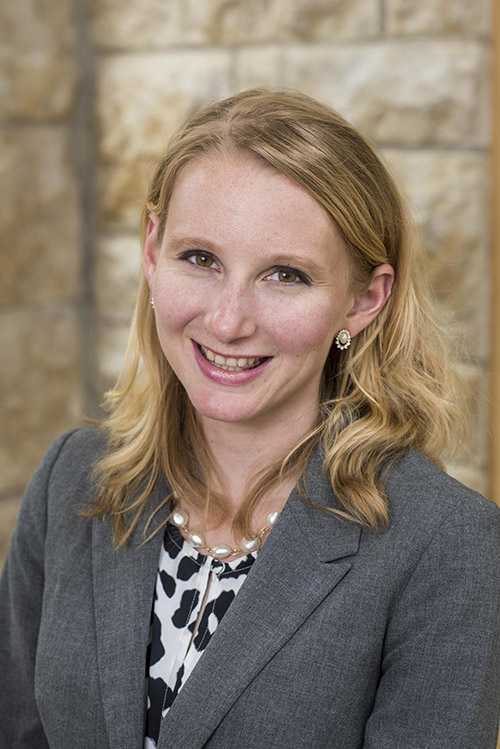University of Arkansas doctoral student Megan Rosa-Caldwell was excited when she heard Yoshinori Ohsumi had won the Nobel Prize in Physiology or Medicine in early October. She doesn't know the Japanese cell biologist and hasn't worked with him, but her research overlaps with his in one important area — autophagy, or the process of how cells clean themselves out.
A Greek term for self-eating, autophagy is pronounced aw-tof-uh-jee. A breakdown in the process is thought to be involved in the development of several diseases as well as the aging process. Rosa-Caldwell is looking specifically at the effect on non-alcoholic fatty liver disease, about which she was lead author in a research article recently published by Applied Physiology, Nutrition and Metabolism. The journal article is titled "Moderate Physical Activity Promotes Basal Hepatic Autophagy in Diet-Induced Obese Mice."
Ohsumi's years of work in discovering autophagy genes and metabolic pathways prompted researchers around the world — such as Rosa-Caldwell — to study the process of autophagy.
"He pioneered methods to measure autophagy so that it became mainstream," she said.
With a team of fellow students and faculty in the Human Performance Laboratory in the College of Education and Health Professions, Rosa-Caldwell studied the differences between two groups of mice. Some of the mice were fed a nutritionally balanced mouse chow while others were fed a chow with a nutritional content that matches what's called a Western diet, which is high in fat at 42 percent of total calories.
The two groups were then divided again, into those given an exercise wheel so they could get physical activity in their cages and those who did not get a wheel.
Non-alcoholic fatty liver disease is one of the fastest growing diseases of the liver, Rosa-Caldwell said. When the researchers studied the livers of the mice, they found a couple of different markers to indicate that some of the mice were on the way to developing non-alcoholic fatty liver disease, but this was corrected with physical activity, she said.
"We used the metaphor that autophagy is like garbage trucks in the cells," she said, "and we looked at two aspects of that — how many garbage trucks were at work cleaning the cells and how fast they did it."
Physical activity protected against non-alcoholic fatty liver disease development and it appeared this was because autophagy was more efficient in the mice that had exercised, the study results indicated.
"That suggests those mice were able to get rid of byproducts brought about by the high-fat diet better than the sedentary mice did," Rosa-Caldwell said.
Rosa-Caldwell is in the first year of her doctoral program in exercise science. Nicholas Greene, assistant professor of exercise science, is her faculty mentor. The work done for the Applied Physiology, Nutrition and Metabolism article took place during her master's program in exercise science at the U of A.
She said she became interested in metabolic processes as a high school athlete who ran cross country and track. She knew working hard at practice was the best way to improve her performance but she also knew nutrition was important. While at a regional conference during her undergraduate days in exercise science at Baker University in Kansas, she came across the work being done by Greene and other students in his Integrative Muscle Metabolism Laboratory at the U of A.
Research such as hers and other studies being done in the field indicate that exercise helps prevent and also can alleviate the symptoms of non-alcoholic fatty liver disease, but work remains to be done to determine what specific cellular mechanisms cause this effect, Rosa-Caldwell said.
"We know that people are diverse and may have limited time to exercise," she said. "What's interesting about our results is they suggest that small amounts of physical activity can still have a big impact on liver health."
Topics
Contacts
Heidi S. Wells, director of communications
College of Education and Health Professions
479-575-3138,
